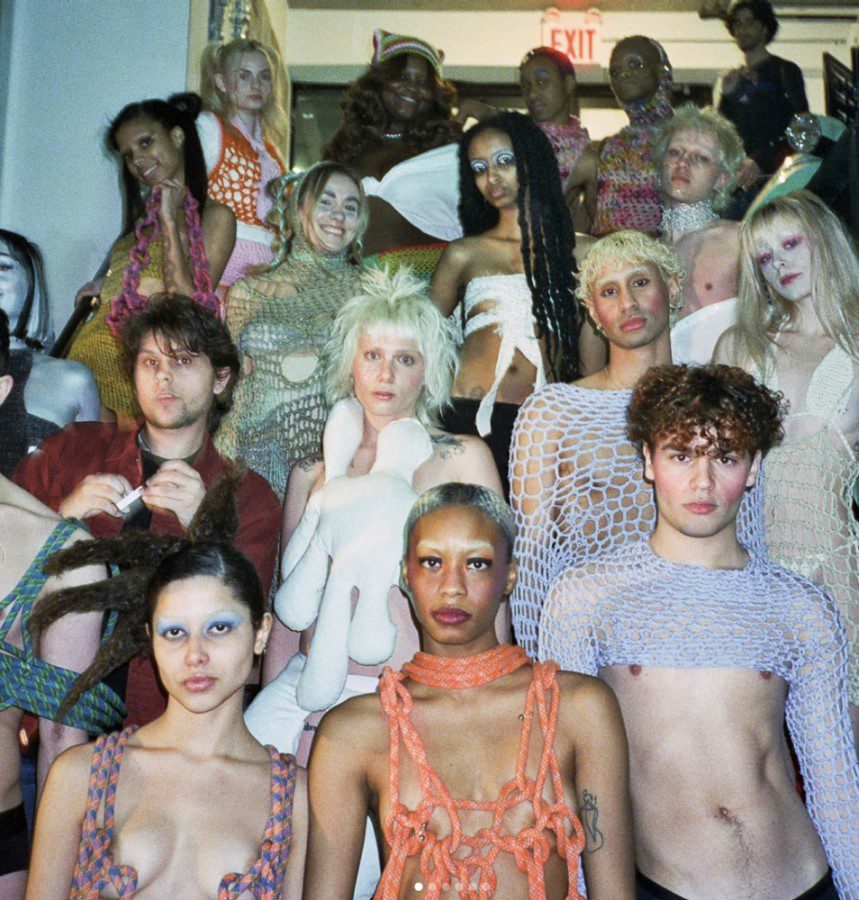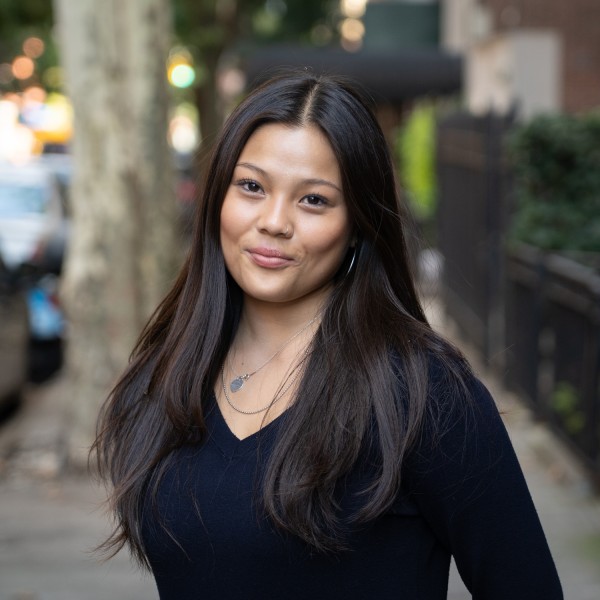More than a trend, knitwear is a mindset
Knitwear brands Rivers McCall and Spicie show that personalization, sustainability and mindfulness form the fabric of the medium.
November 16, 2022
Knitwear’s resurgence is closely related to fashion’s tumultuous dialogue with sustainability. Produced by hand, made to last and one-of-a-kind, these intricate webs of yarn, string and rope cling to bodies all over my magazine spreads. Carefully constructed lattices hang delicately in showrooms — a piece of art on their own. The craft’s accessibility and cost efficiency provide low entry barriers into the art form.
Despite its conservative association, knitwear’s comeback is fresh and youthful. Society has moved from thinking large-scale — in terms of ethical manufacturing and marketing — to thinking about how our individual lifestyle choices can bolster sustainability. Founder of an eponymous knitwear boutique, Rivers McCall sees this shift the most in upcycling, re-wearing and trading — essentially claiming autonomy over our own closets.
“Throw every microtrend out the window,” McCall said. “Come up with the craziest thing you can. Knitwear is kind of chaotic, and it just fits right now.”
The embracing of the avant-garde iterations of knitwear has been working its way into the mainstream, with deconstructed and open-knit pieces gaining popularity among consumers. Inspired by the functional and earthy aesthetics of Utah, her home state, McCall ventured beyond the conventional by selling knitwear garments in three materials: rope, chain and classic yarn.
McCall’s signature creation, The Rope Bag, is a shoulder purse made purely from tying recycled climbing rope together. After the basics of the craft are mastered, the possibilities — whether it’s in terms of fabrics or knit — are endless.
Knitwear’s connective ability runs deeper than just in its construction. It’s a social fabric too, drawing ties between communities of like-minded designers. Citing TikTok as a way for smaller creators to gain traction, McCall finds a deep sense of joy in buying specific clothing items from fellow local artists. Knowing who to go to for each item gives consumers more room for wardrobe personalization and curation.
Amber Kollar, the founder of the knitwear brand Spicie, personalizes each garment for her customers. She sketches out pieces inspired by their styles and proportions. By shortening the supply chain, the maker’s vision is inextricably tied to the wearer’s needs.
“It’s touching to know that my customers wholeheartedly trust me,” Kollar said. “They don’t ask for discounts or complain about the price point of my pieces.”
When planning out pieces for her customers, dynamic layers, asymmetrical cutouts and warped lattices cover Kollar’s drawing board. Knitwear allows her to experiment in ways that other fabrics could not.
“There’s also an element of playfulness,” she added about the forgiving textile.
There are many methods of adjustment and redesigning as the maker sees fit. Knitwear’s malleability prioritizes the body first, shaping itself around it. Fixed sizes, forms and gendered silhouettes are discarded.
“I love the idea of nudity in high fashion, not in terms of sexualization, just because I love being able to bring out all of a person’s features,” McCall said. “Clothes are just an extension of the body.”
Not only does knitwear provide a sense of freedom for the body, but also for the mind. It was during the isolation of the pandemic that both McCall and Kollar began knitting to calm their anxiety and practice mindfulness.
The rise of knitwear signifies a shift towards more inclusive and sustainable approaches to fashion presentation. At its core, knitwear is a blank slate. Forgiving, ever-changing and multidimensional, the medium can be anything we want it to be. By etching these ornate patterns on ourselves, we etch on our chosen identities, too.
Contact Sabrina Lee at [email protected].

























































































































































